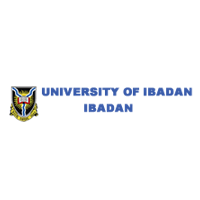Below is a summary of the abstract you submitted. Presenting author(s) is shown in bold.
If any changes need to be made, you can modify the abstract or change the authors.
You can also download a .docx version of this abstract.
If there are any problems, please email Dan at dar78@pitt.edu and he'll take care of them!
This abstract was last modified on May 24, 2024 at 4:21 p.m..

Globally, engaging undergraduate students in scientific research promises substantial benefits. However, this privilege is not readily available to students in low- and middle-income countries and is rarely integrated when available to offer a great long-term impact. The commencement of the SEA-PHAGES program at the University of Ibadan (UI) in 2018 marked the beginning of early-career research engagement in bacteriophage biology and computational studies for many undergraduate students in the institution. To enhance the program's core ideology, the SEA-PHAGES UI team adopted a student-driven, adventure-based learning model reinforced by vibrant mentor-mentee relationships to foster broad student engagement in authentic science. This model has helped increase the students' accessibility to research experiences. In the UI team, we have succeeded in designing an educational model for the program that provides science-centric learning where scientific ideas from students are welcomed and sponsored by a vibrant faculty mentorship. This active faculty mentorship, which involves supervision and encouragement of student scientific inquisition, has proven to be exceedingly progressive in promoting core scientific interests and facilitating continued involvement in science by the students. Despite the current challenges faced in implementing a successful wet lab process, this training model has not only kept the students up to par in this aspect but also improved their expertise in computational genomics. The students are well-equipped and innovative towards computational approaches to solving scientific questions. This is evident in the overall performance of the students in quality research presentations, publications, conferences attended, and recognition, both locally and internationally. The success of this model by the SEA-PHAGES UI team, despite stated challenges so far, has attracted other research institutions across sub-Saharan Africa to incorporate such a student-driven, adventure-based learning model reinforced by vibrant faculty mentorship, as it guarantees a fluid learning model that is not bound by on-site laboratory challenges.
